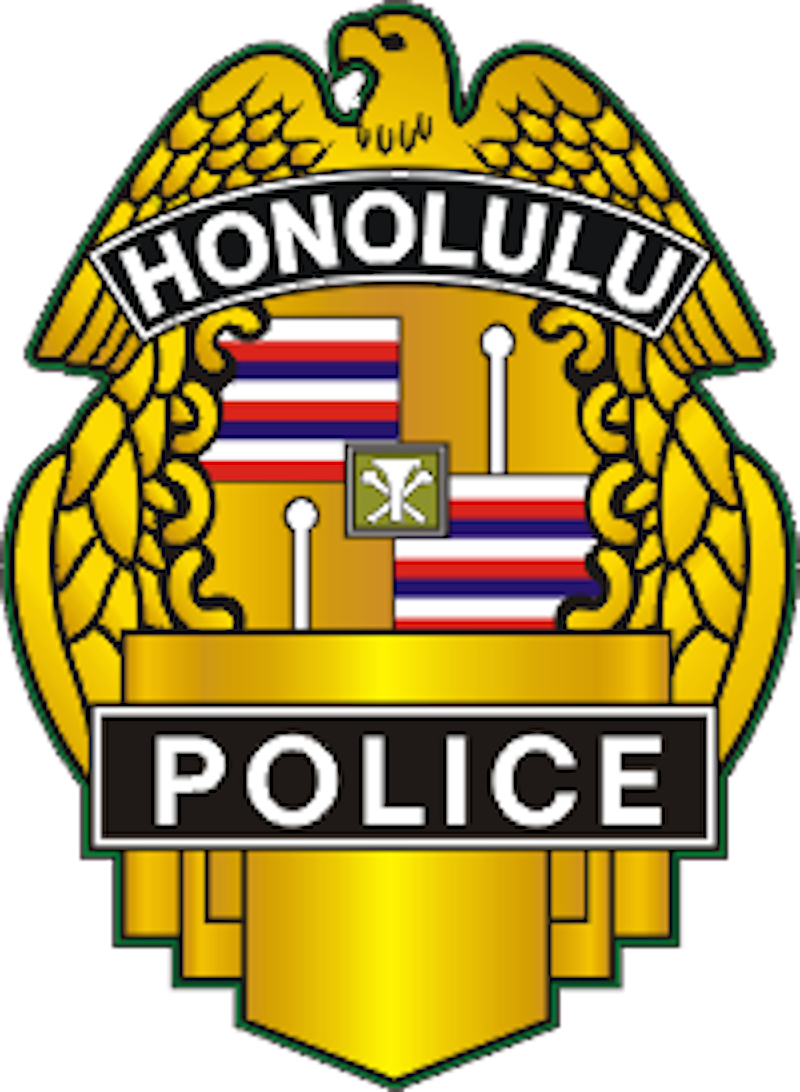Employees are expected to maintain professionalism
and uphold the integrity of the department when
representing the Honolulu Police Department (HPD)
on social media websites or when using the Internet
to access and engage in social networking sites.
BACKGROUND
Use of social media by the HPD is intended to be
used as a means of communication between the
department and the public. Social media provides
a valuable means of assisting the HPD with
community outreach, problem solving, investigations,
crime prevention, and other related departmental goals and objectives.
DEFINITIONS
Blog: A self-published diary or commentary
on a particular topic that may allow visitors
to post responses, reactions, or comments.
Employee: A police officer, civilian, helicopter
pilot, reserve officer, contract hire, or volunteer of the HPD.
Internet: A worldwide network of interconnected
computer networks on which end-user services,
such as the World Wide Web or data archives, are
located and enable data and other information to
be exchanged. The Internet includes commercial,
educational, governmental, and other networks.
They all use the same set of communication protocols.
Page: The specific portion of a social media website
where content is displayed and managed by an individual
or individuals with administrator rights.
Profile: Information that a user provides about
himself or herself on a social networking site.
Post: Content an individual shares on a social
media page or the act of publishing content on a
social media site. Content can be in the form of
spoken words, stories, photographs, videos, images,
or related forms of communication.
Social media: A category of Internet-based
resources that integrate user-generated content
with user participation. This includes, but is
not limited to, social networking sites (i.e.,
Facebook and Instagram), microblogging sites
(i.e., Twitter), photo- and video-sharing sites
(i.e., Flickr and YouTube), wikis (i.e., Wikipedia),
blogs, bulletin/message boards, and news sites
(i.e., Digg and Reddit).
Social network: Online platform where a user
can create a profile, post information, and
communicate with others using a range of technologies.
Speech: Expression or communication of thoughts
or opinions in spoken words, writing, photographs,
or videos; by expressive conduct; through symbolism;
or related forms of communication.
Uniform Resource Locator (URL): A specific character
string that constitutes a reference to an Internet
resource. A URL is also commonly called the “web address.”
Website: Published page(s) on the World Wide Web.
Usually containing hyperlinks and published by an
individual, company, educational institution, government, or organization.
World Wide Web: A system of interlinked, hypertext
documents accessed via the Internet. With a web browser,
an individual can view web pages that may contain text,
images, videos, and other multimedia and navigate between
them via hyperlinks.
AUTHORIZED USE OF SOCIAL NETWORKS
A. The Chief of Police or designee
may authorize the use of social networks or social
media sites to any element or employee for the
purpose of promoting the HPD’s mission and goals.
B. The Virtual Unit shall be responsible
for ensuring that the layout of the HPD’s social
media websites are consistent with the image set
by the Chief of Police. All web pages shall comply with this standard.
C. Any element or employee receiving
authorization to use social media sites to
represent the HPD shall notify the Information
Technology Division (ITD) of the site’s URL
(e.g., http://www.youtube.com/thehonolulupd).
The commander of the ITD or designee shall
maintain a list of the HPD’s authorized social media sites.
D. Authorized HPD social media sites shall, whenever practicable:
1. Indicate that they are maintained by the department;
2. List departmental contact information prominently;
3. Include a disclaimer that the opinions
expressed by visitors to the page(s) do not
reflect the opinions of the department and that
the HPD reserves the right to remove postings
that violate federal, state, city, or departmental
rules; regulations; ordinances; policies; or
standards (i.e., obscenities, commercial postings,
political statements, or endorsements); and
4. Include the URL that links back to the
HPD official website. Additionally, the HPD’s
official website shall include links to the
department’s official social media sites.
E. Department-authorized social media content shall be:
1. Subject to public records laws and relevant retention schedules; and
2. Managed, stored, and retrieved to comply
with open records laws, electronic discovery laws, and departmental procedures.
F. Employees shall adhere to the following guidelines
when using social media on behalf of the HPD:
1. Conduct themselves at all times as representatives
of the department. Information posted on department-authorized
social media websites shall be respectful, professional,
and truthful. Corrections shall be issued when necessary;
2. Abide by all copyright, trademark, and service mark restrictions;
3. Adhere to all departmental policies and rules
governing conduct when using social media;
4. Maintain any official HPD social
media account created to profile an HPD employee
or group. In the event an employee leaves the
department, the account shall remain under the control of the HPD;
5. Shall not post speech that would compromise
departmental objectives or place another person in danger; and
6. Shall not engage in prohibited speech,
as noted herein, as it may provide grounds for
undermining or impeaching an employee’s testimony
in criminal and civil proceedings.
G. Investigative Use of Social Media
1. Officers may use social media to conduct
investigations. Prior authorization shall be
obtained from the Chief of Police or designee.
2. Officers using social media in an undercover
capacity shall adhere to the guidelines set forth in
the manuals of operations for their respective elements.
3. Search methods for social media shall not
involve techniques that violate existing laws.
PERSONAL USE OF SOCIAL MEDIA
A. Employees shall be mindful that
their speech becomes a published record on the
World Wide Web and will remain there indefinitely.
B. Employees are free to express themselves
as private citizens on social media sites to the
degree that their speech and/or language do not
violate any laws, statutes, the Revised Ordinances
of Honolulu, and departmental policies, including
the Standards of Conduct, as applicable.
C. Such actions may be subject to disciplinary
action, including termination.
